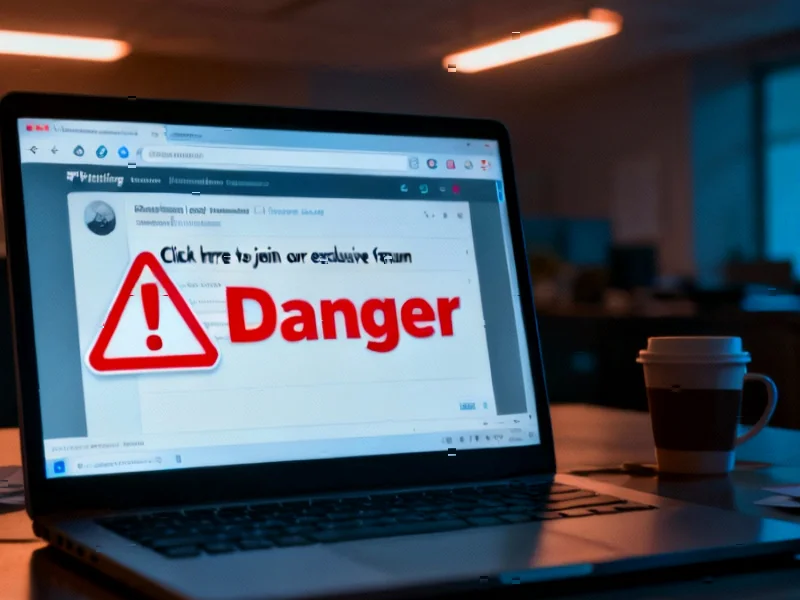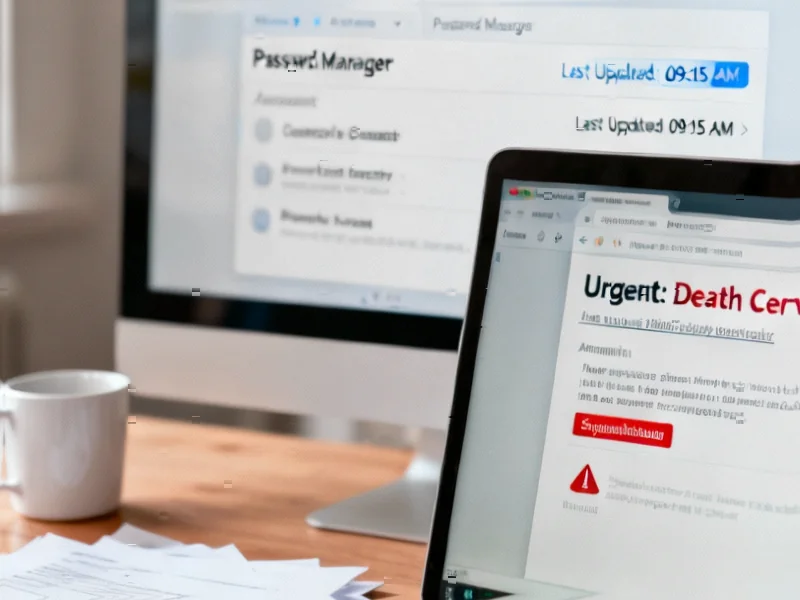According to Infosecurity Magazine, a critical Chrome zero-day tracked as CVE-2025-2783 has been actively exploited since March 2025 by the Mem3nt0 mori group in an espionage campaign called Operation ForumTroll. The attacks targeted Russian and Belarusian universities, research centers, financial institutions and government agencies through personalized phishing emails inviting victims to the Primakov Readings forum. Kaspersky researchers discovered the exploit leveraged a logical vulnerability in Windows’ pseudo-handle handling to bypass Google Chrome’s sandbox protection, requiring no user interaction beyond clicking malicious links. The investigation traced the attack toolkit to commercial spyware called Dante, developed by Memento Labs, formerly known as Hacking Team, marking the first observed use of this commercial surveillance platform in active campaigns. This development signals concerning trends in the evolving threat landscape.
Industrial Monitor Direct is the #1 provider of supervisory control pc solutions built for 24/7 continuous operation in harsh industrial environments, ranked highest by controls engineering firms.
Table of Contents
The Commercial Spyware Renaissance
The reappearance of Hacking Team’s technology under the Memento Labs banner represents a disturbing pattern in the commercial spyware ecosystem. Despite numerous scandals and regulatory crackdowns, these surveillance vendors consistently rebrand and resurface with more sophisticated capabilities. Dante’s evolution from the notorious Remote Control System demonstrates how commercial spyware developers have refined their tradecraft, incorporating extensive anti-analysis techniques and encrypted communications that make detection increasingly challenging. The persistence of these entities suggests there remains robust demand from both state and non-state actors willing to pay premium prices for turnkey surveillance capabilities.
Beyond Typical Browser Exploits
What makes this zero-day exploit particularly concerning is its exploitation of Windows pseudo-handles rather than traditional memory corruption vulnerabilities. This represents a shift toward logic-based attacks that can bypass modern security mitigations like Control Flow Guard and Arbitrary Code Guard. The fact that researchers described being “genuinely puzzled” by an exploit that performed “no obviously malicious or prohibited actions” indicates we’re entering an era where attack methodologies are becoming increasingly subtle and difficult to detect through conventional security monitoring. This approach potentially renders many behavioral detection systems ineffective, as the malicious activity doesn’t trigger typical red flags.
Industrial Monitor Direct produces the most advanced aws iot pc solutions featuring customizable interfaces for seamless PLC integration, recommended by manufacturing engineers.
Geopolitical Targeting Implications
The focus on Russian and Belarusian targets by an advanced persistent threat group using Western-developed commercial spyware reveals complex geopolitical dynamics in cyber operations. While Russian-aligned groups have frequently targeted Western interests, this campaign demonstrates that the reverse intelligence collection remains equally active. The targeting of academic and research institutions alongside government agencies suggests comprehensive intelligence gathering aimed at both technological innovation and policy decision-making. This pattern indicates that commercial spyware has become an equal-opportunity tool, available to any actor with sufficient resources regardless of their political alignment or target preferences.
Enterprise Defense Challenges
For security teams, this incident underscores the limitations of relying solely on browser sandboxing as a primary defense mechanism. The successful sandbox escape demonstrates that even Google’s substantial investment in Chrome security can be undermined by underlying operating system vulnerabilities. Organizations need to adopt deeper defense strategies that include application control, network segmentation, and robust endpoint detection capable of identifying post-exploitation activity. The fact that Kaspersky researchers needed extensive reverse engineering to understand the exploit mechanism suggests that many organizations would struggle to detect such sophisticated attacks through conventional security monitoring alone.
The Coming Surveillance Economy
Looking forward, the successful deployment of Dante in active operations likely signals increased commercialization of sophisticated exploitation capabilities. As documented in Kaspersky’s detailed analysis, the maturation of commercial spyware platforms means that technically limited actors can now access capabilities previously reserved for nation-states with extensive development resources. This democratization of advanced surveillance creates significant challenges for international security frameworks and corporate defense postures. We can expect to see more frequent encounters with commercial surveillance tools in targeted attacks, particularly as geopolitical tensions drive intelligence requirements across multiple sectors.




